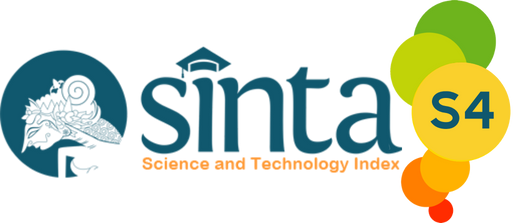Efektivitas Media Teka-Teki Silang Terhadap Penguasaan Kosakata Bahasa Jepang Siswa SMA
DOI:
https://doi.org/10.24036/omg.v6i2.722Keywords:
Effectiveness, vocabulary, crosswordsAbstract
This study was inspired by the researcher's observation that pupils struggle to learn and remember Japanese terminology. The goal of this research was to examine the impact of crossword media on high school students' ability to learn Japanese vocabulary. This study employed a quantitative approach and a Pre Experimental Design for its investigation. The study employed a pre- and post-test design with a single group. Twenty-five students from IPS 1 in Grade 12 made up the study's sample. This research employed a systematic, unbiased sampling strategy. The information in this study comes from before and after examinations. The method of information gathering is a multiple-choice test with as many as 30 questions. The results of the Paired Samples T-Test show that the crossword game medium is significantly effective on the Japanese vocabulary mastery of students in class XII at IPS 1 SMAN 13 Padang, with a sig (2-tailed) value of 0.000 < 0.05. Additionally, pupils improved their Japanese vocabulary knowledge after utilising crossword puzzles as a learning tool. The average score before the test was 70.76, thus this boost from that to 83.32 is clear.
References
Azwar, Syaifuddun. (1997). Reliabilitas dan Validitas. Yogyakarta : Pustaka Pelajar.
Cahyo, Agus N. (2011). Gudang Permainan Kreatif Khusus Asah Otak Kiri Anak. Yogyakarta: Flashbooks.
Chaer, Abdul. (2011). Ragam Bahasa Ilmiah. Jakarta: Rineka Cipta.
Chaer, Abdul.(2012). Linguistik Umum. Revisi. Jakarta: Rineka Cipta.
Emzir.(2009). Metodologi Penelitian Pendidikan. Jakarata: PT Raja Grafindo Persada.
Medikawati, Julie. (2012). Membuat Anak Gemar dan Pintar Bahasa Asing. Jakarta: Visimedia.
Paul, Suparno. (2007). Filsafat Konstruktivisme dalam Pendidikan. Yogyakarta: Kanisius.
Sanjaya, Wina. (2015). Penelitian Pendidikan. Jakarta : Prenada Media Group.
Sholikhah, Erika Mariatus (2016) Efektivitas Penggunaan Metode Permainan Teka Teki Silang Bermedia Gambar Untuk Meningkatkan Penguasaan Kosakata Bahasa Jepang Pada Siswa Kelas X Lintas Minat Sma Negeri 1 Batu Tahun Ajaran 2015/2016. Sarjana thesis.Universitas Brawijaya.
Sudjianto, dkk. (2004). Pengantar Linguistik Bahasa Jepang. Jakarta: Kesaint Blank.
Sugiyono. (2018). Metode Penelitian Kuantitatif, Kualitatif dan R&D. Bandung: Alfabeta.
Sugiyono. (2018). Metode Penelitian Kuantitatif. Bandung: Alfabeta.
Wibowo, Wahyu. (2001).Manajemen Bahasa. Jakarta: Gramedia.
Yulia, Nova. (2020). Students’ Mastery On Writing Kanji At Japanese Language Education Study Program Of UNP. Jurnal kata: Penelitian Tentang Ilmu Bahasa dan Sastra.p.28









